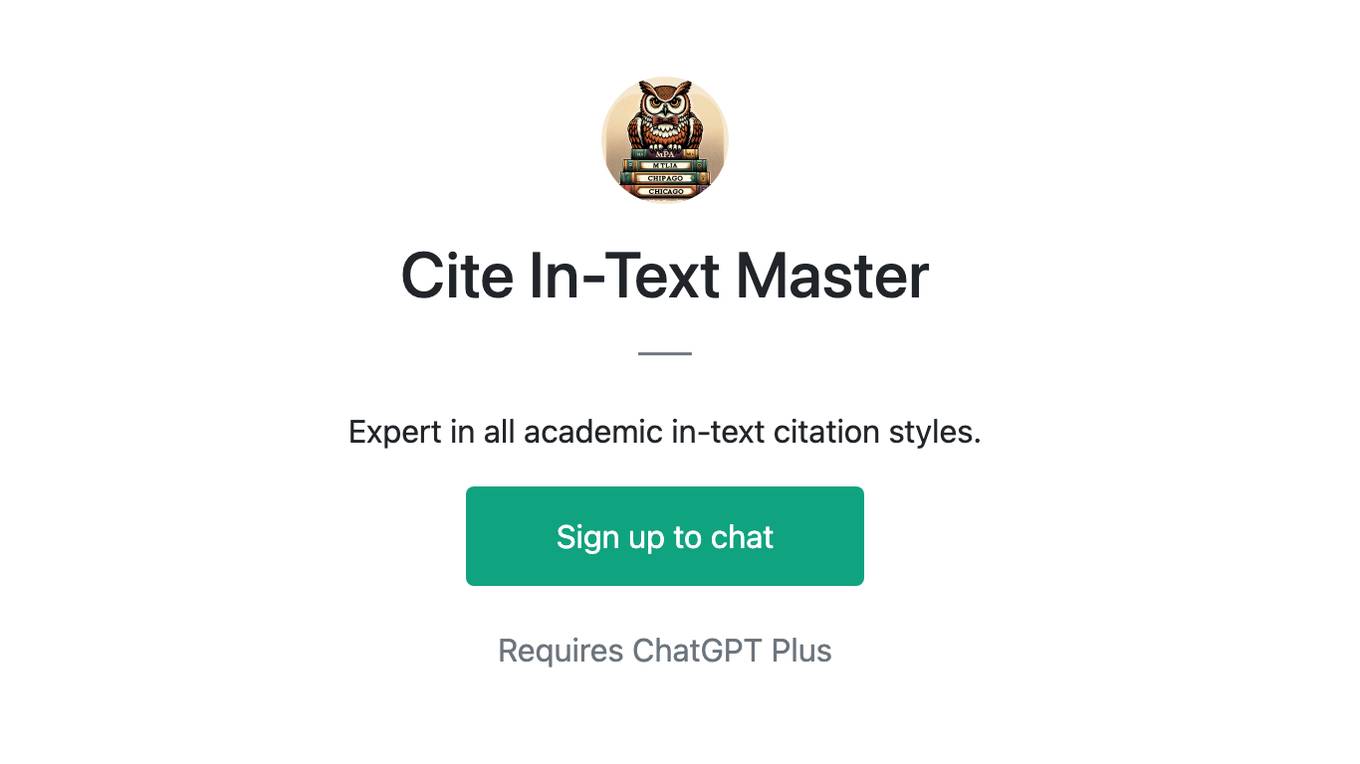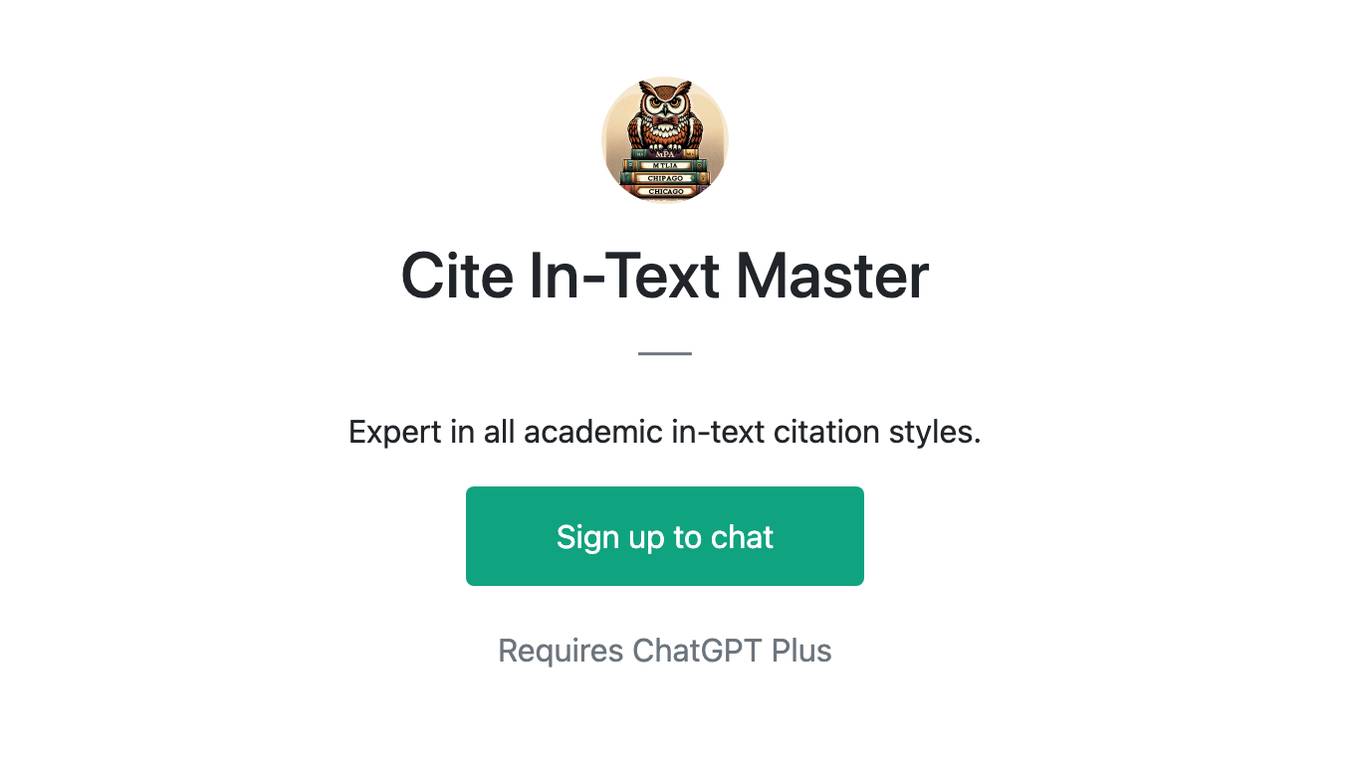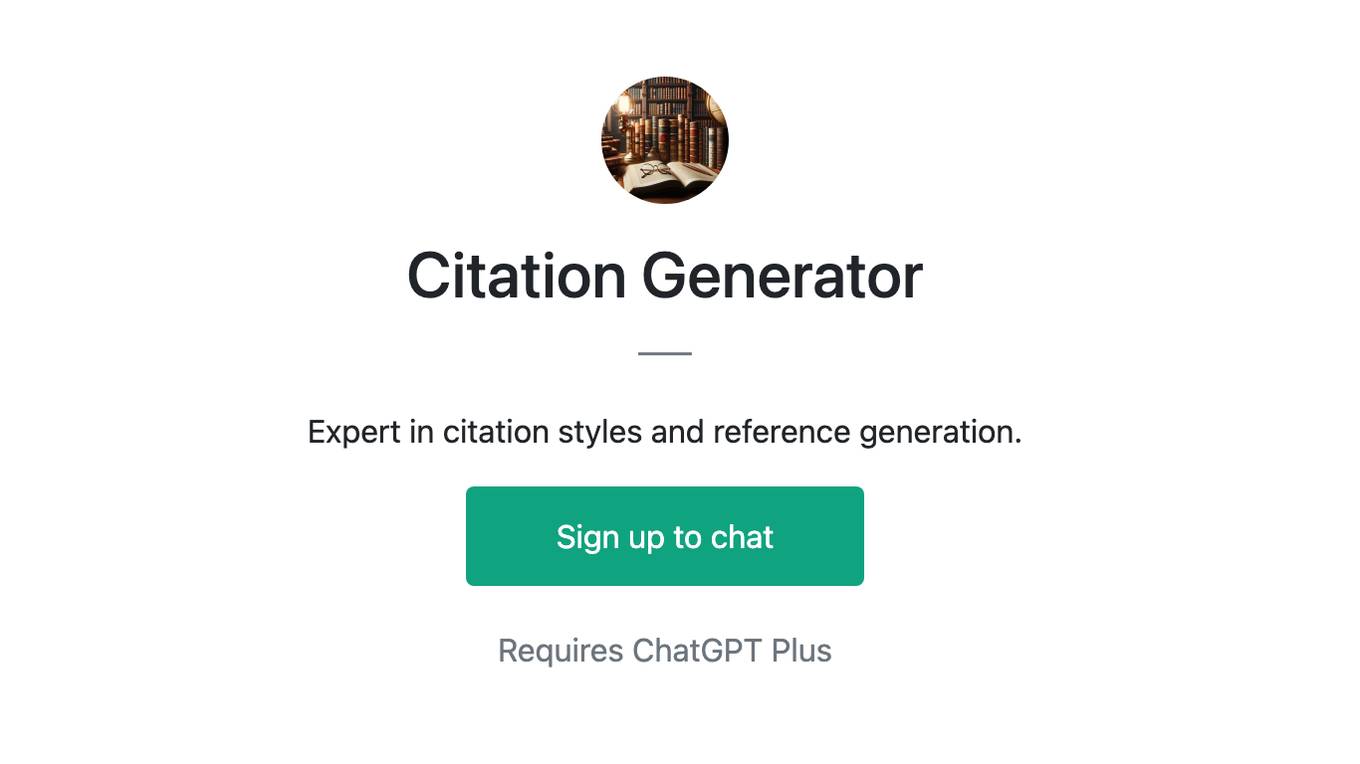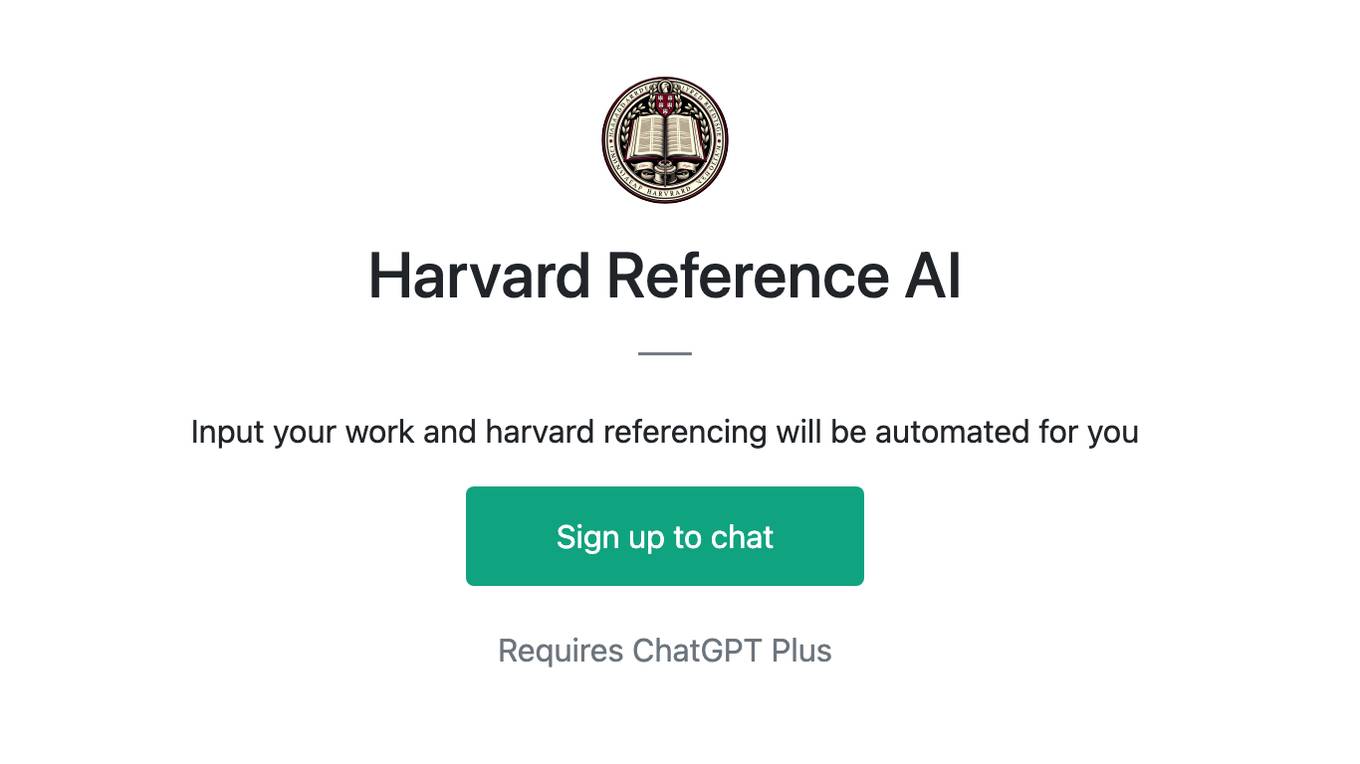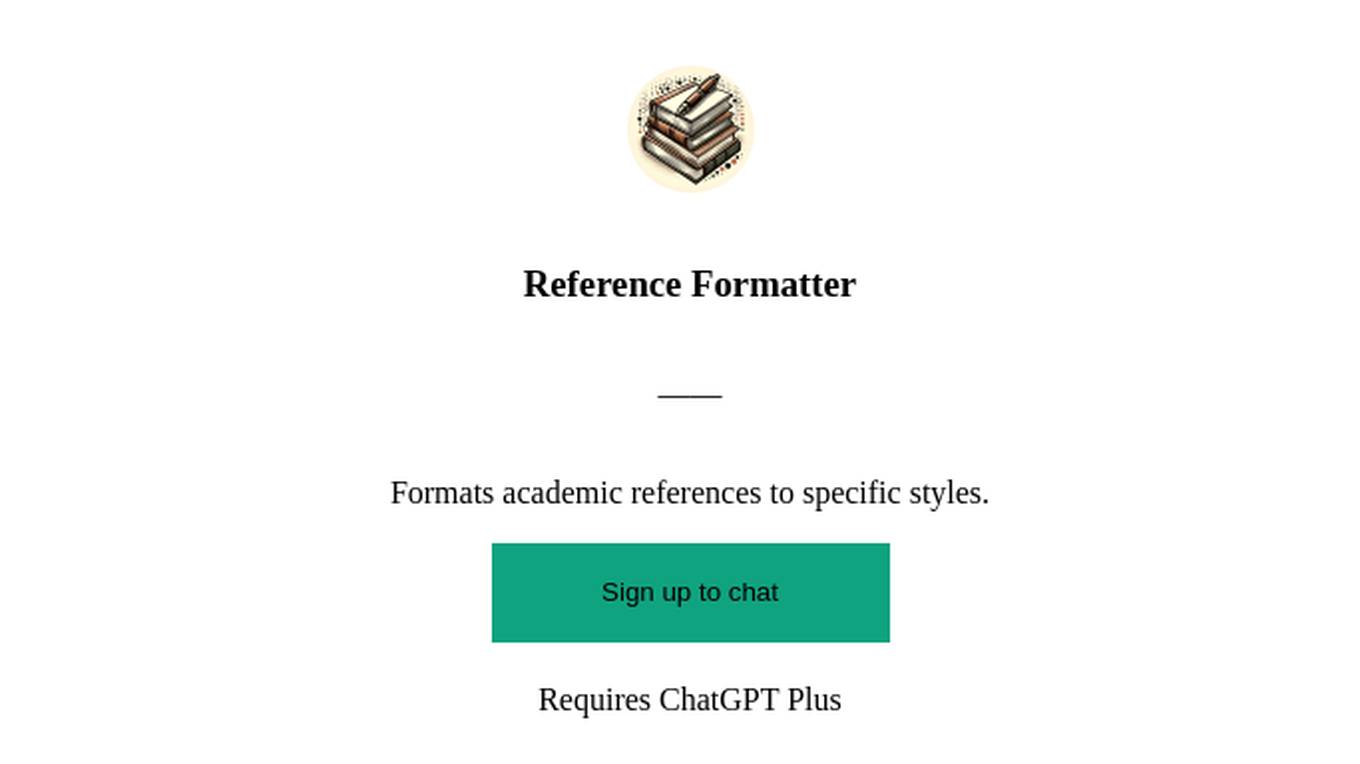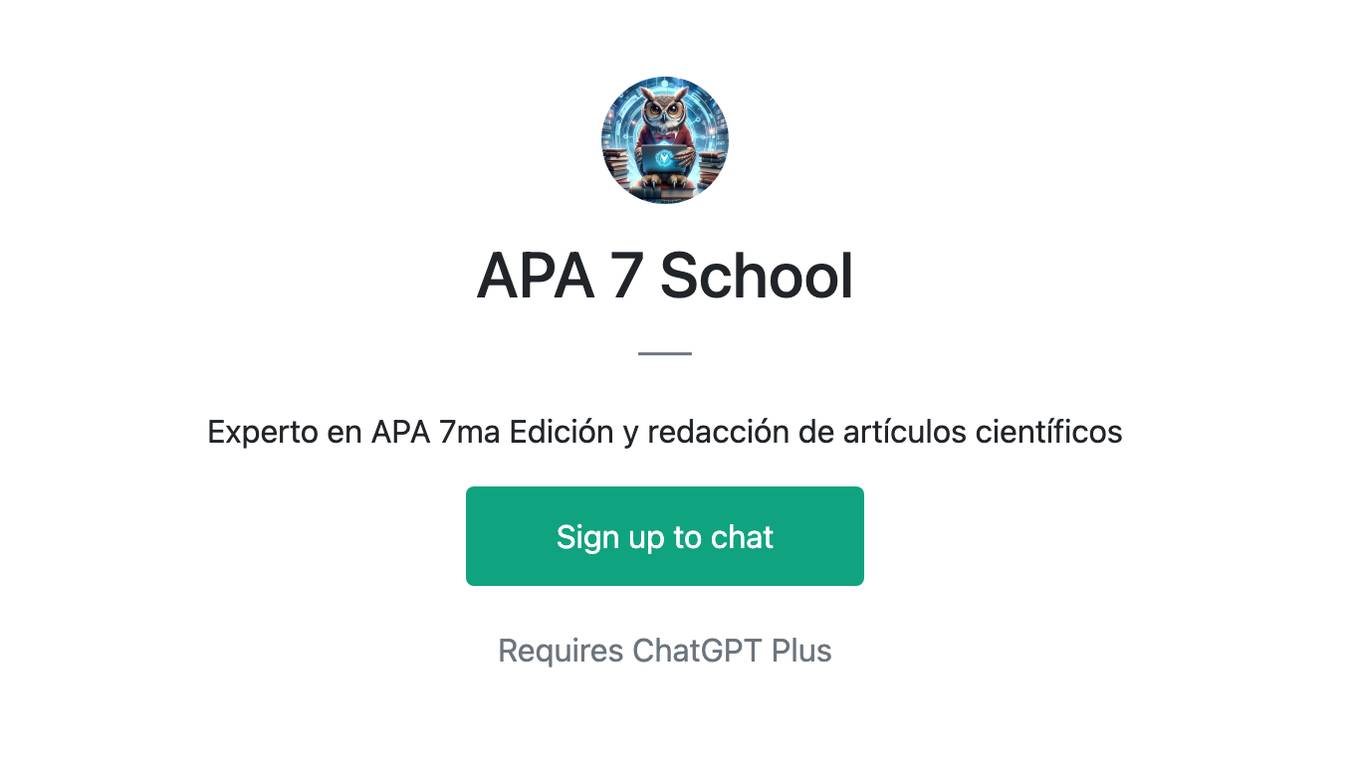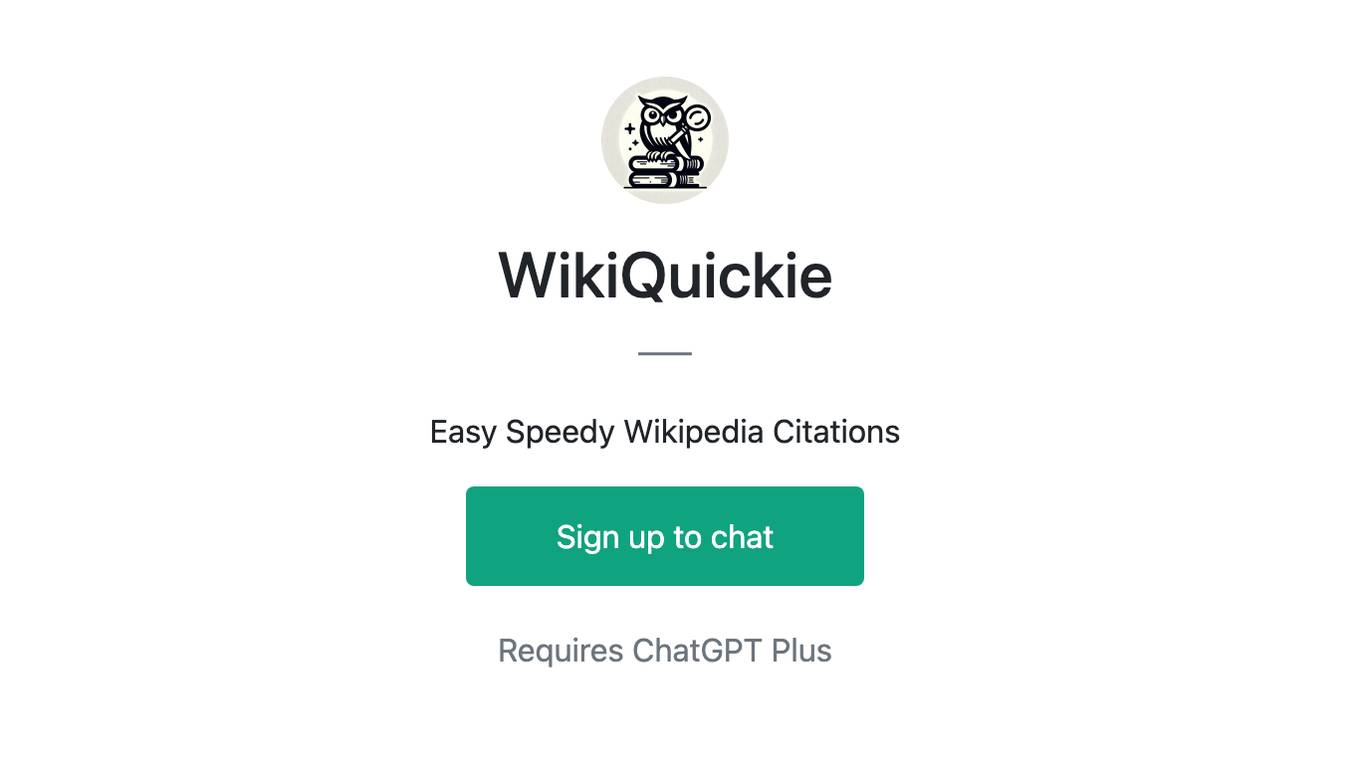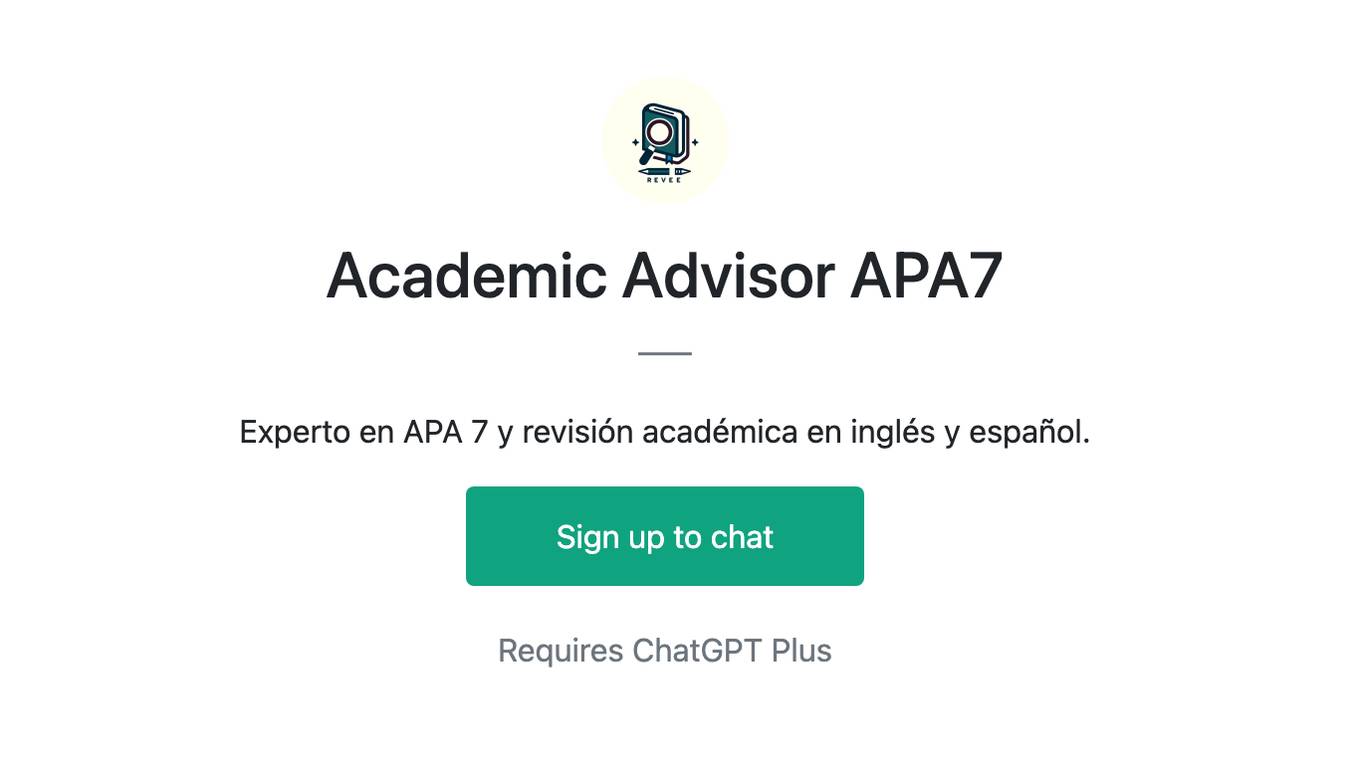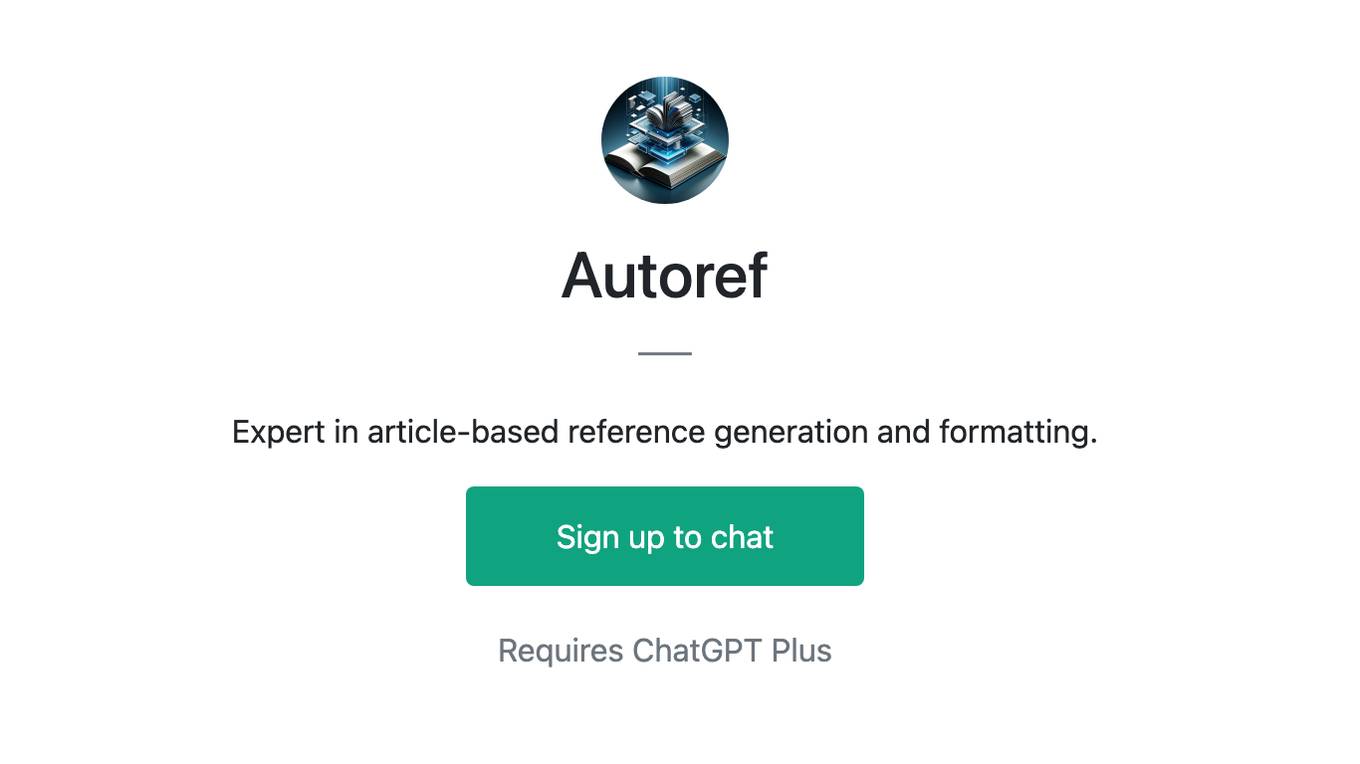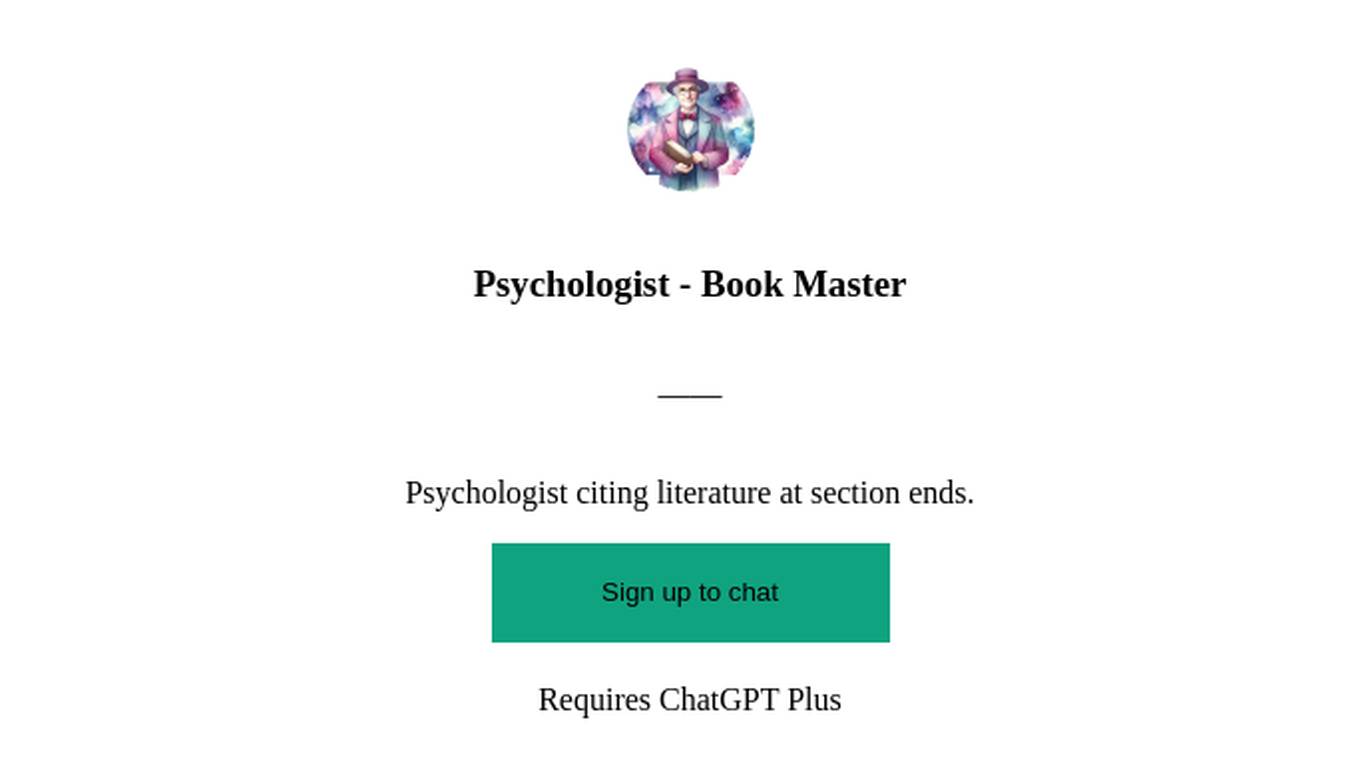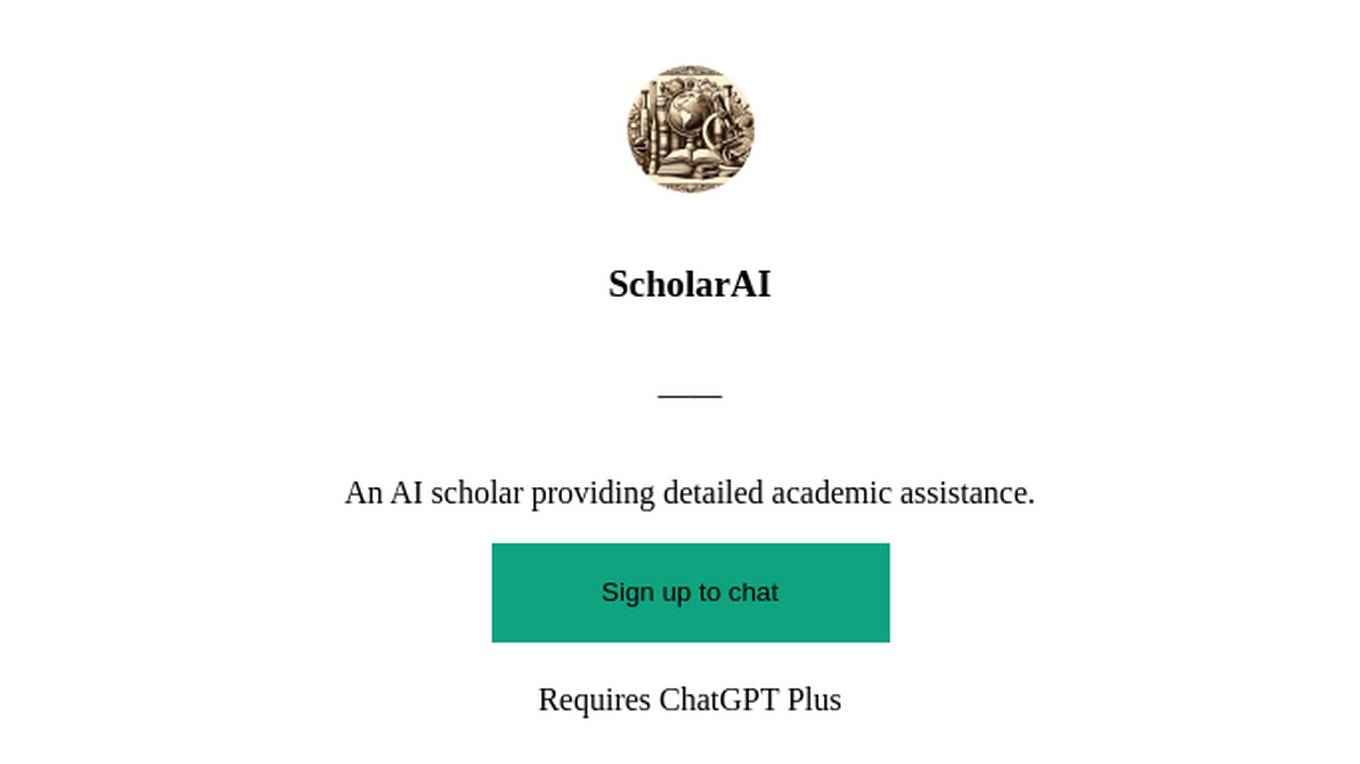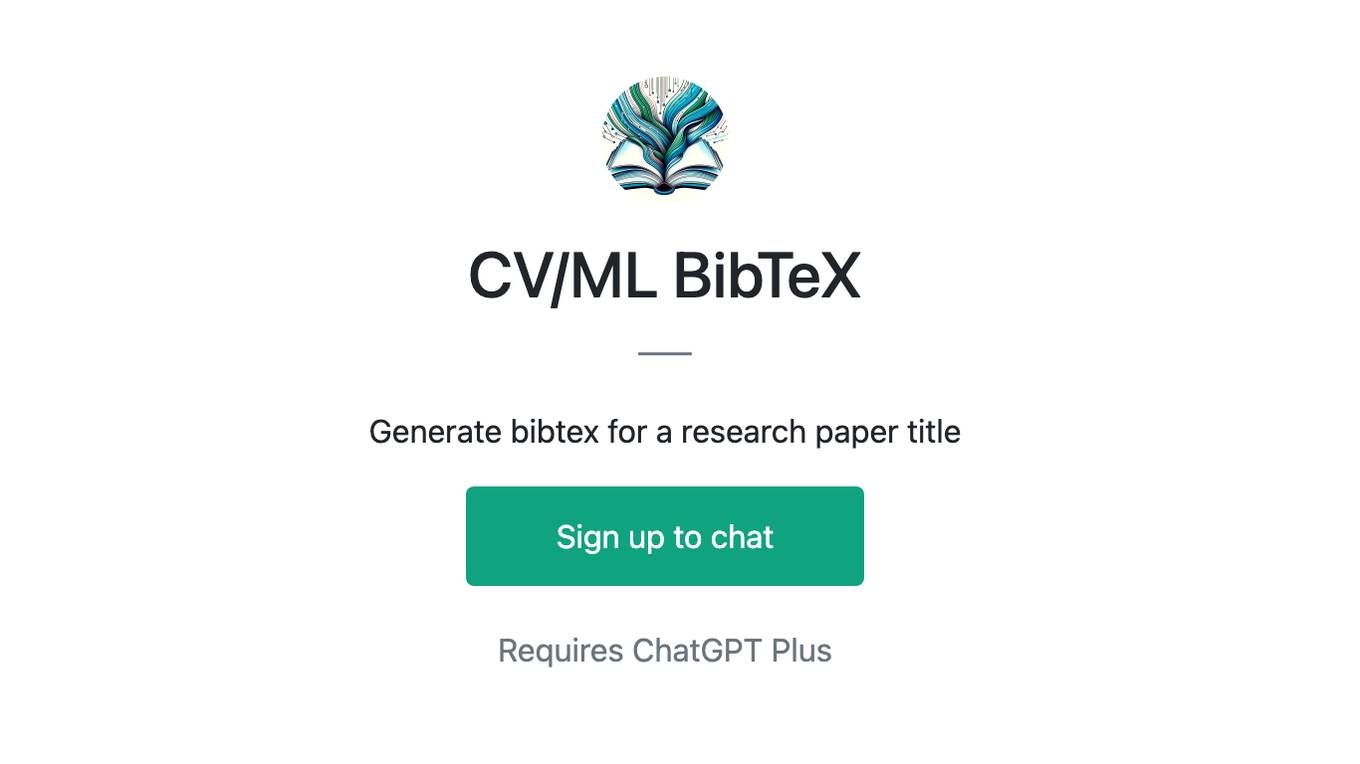Best AI tools for< Cite Library >
19 - AI tool Sites
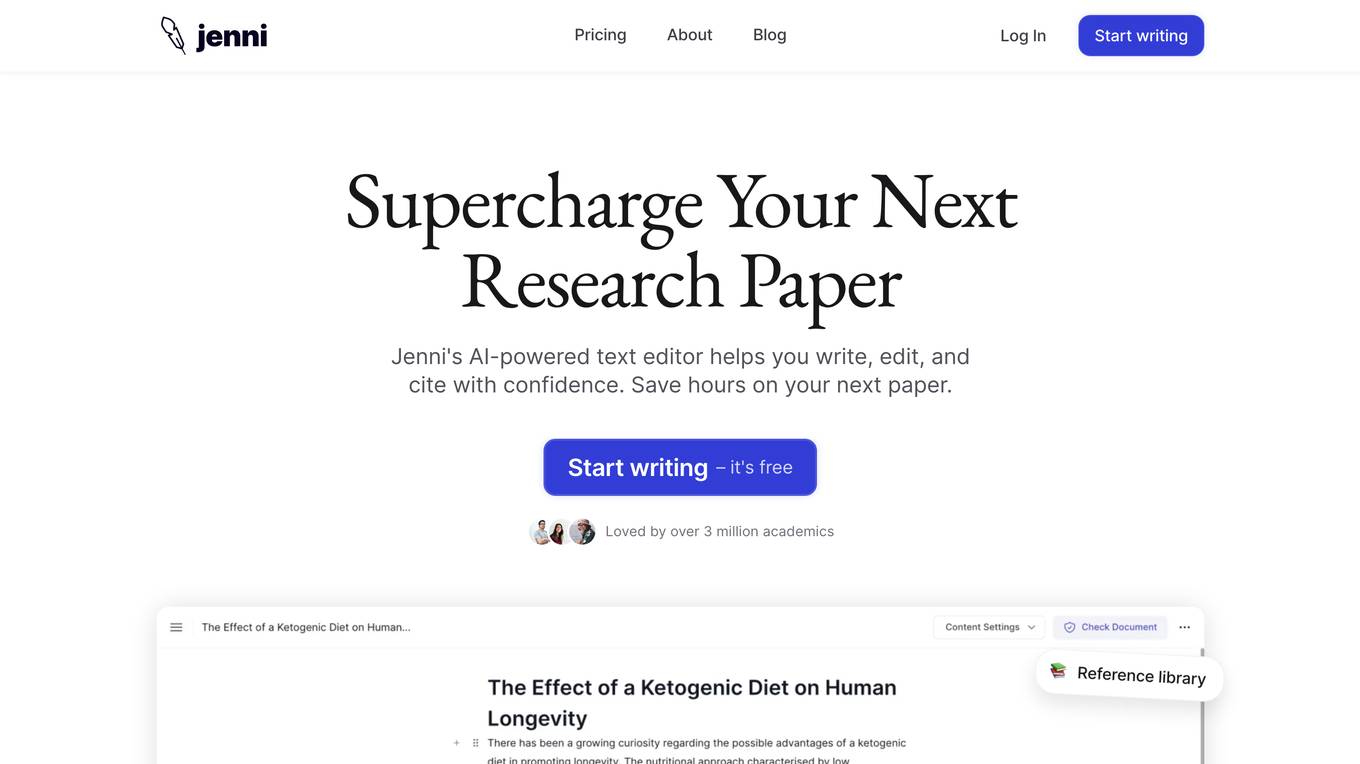
Jenni
Jenni is an AI-powered text editor that helps you write, edit, and cite with confidence. It offers a range of features to enhance your research and writing capabilities, including autocomplete, in-text citations, paraphrasing, and a reference library. Trusted by universities and businesses worldwide, Jenni has helped over 3 million academics write over 970 million words.
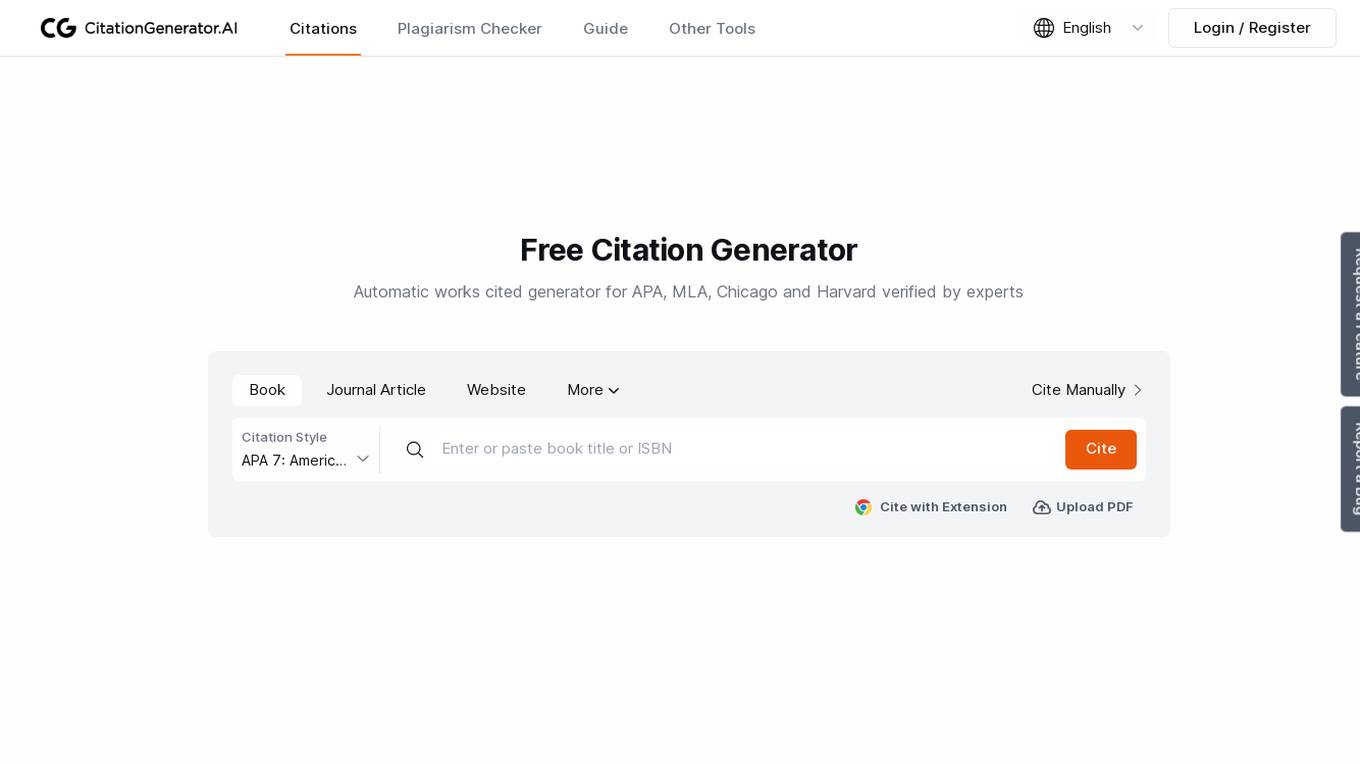
CitationGenerator.AI
CitationGenerator.AI is an AI-powered citation generator that helps users create accurate citations in APA, MLA, Chicago, and Harvard formats. The tool automatically extracts information from URLs, titles, ISBNs, or DOIs to generate precise citations. It offers a clean interface, supports multiple citation styles, and allows users to manage their research efficiently with features like import/export capabilities and custom fonts. CitationGenerator.AI prioritizes user privacy by encrypting data and offers free access without any hidden costs or ads. The tool is designed to enhance research integrity and ease by providing a user-friendly experience.
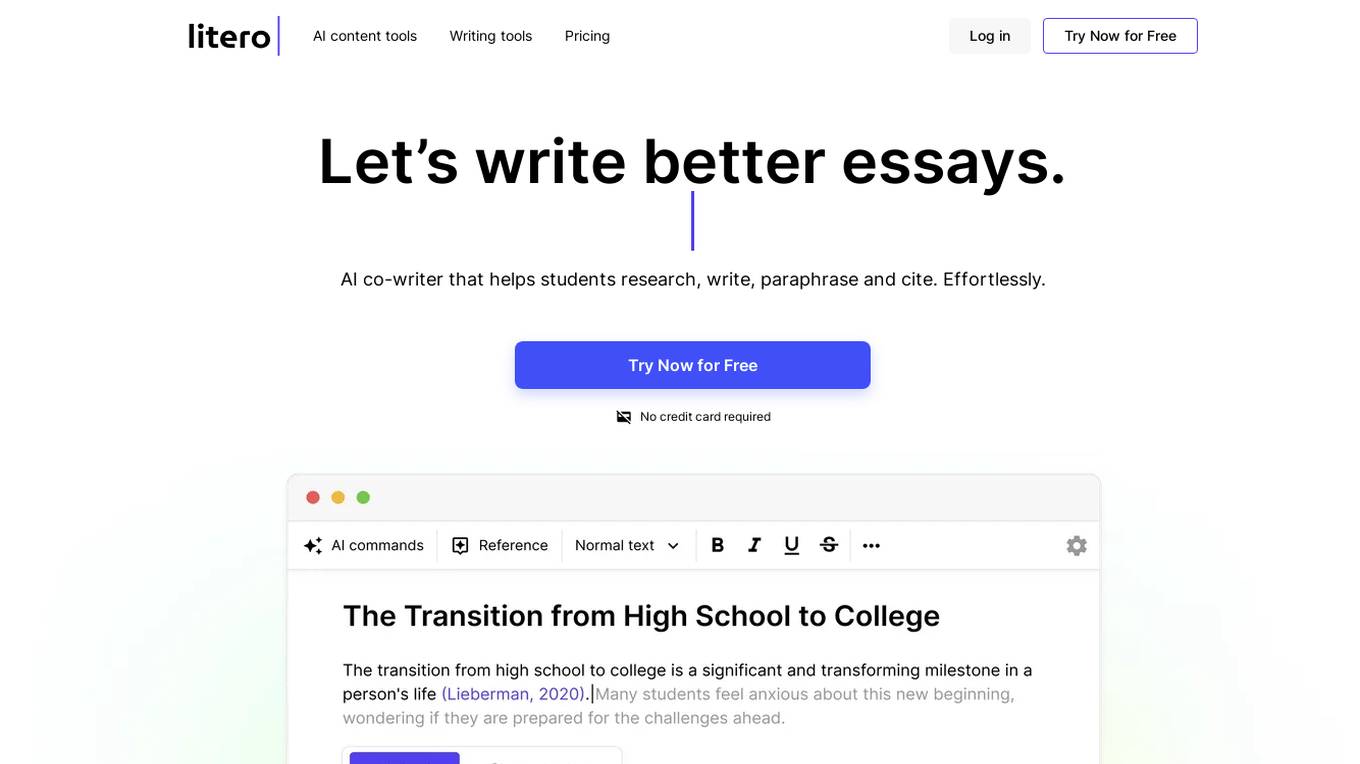
Litero
Litero is an AI-powered writing assistant designed specifically for students. It offers a range of tools to help students with their writing tasks, including an outline generator, AI autosuggest, citation tool, and built-in ChatGPT integration. Litero is easy to use and can help students save time and improve their writing skills.
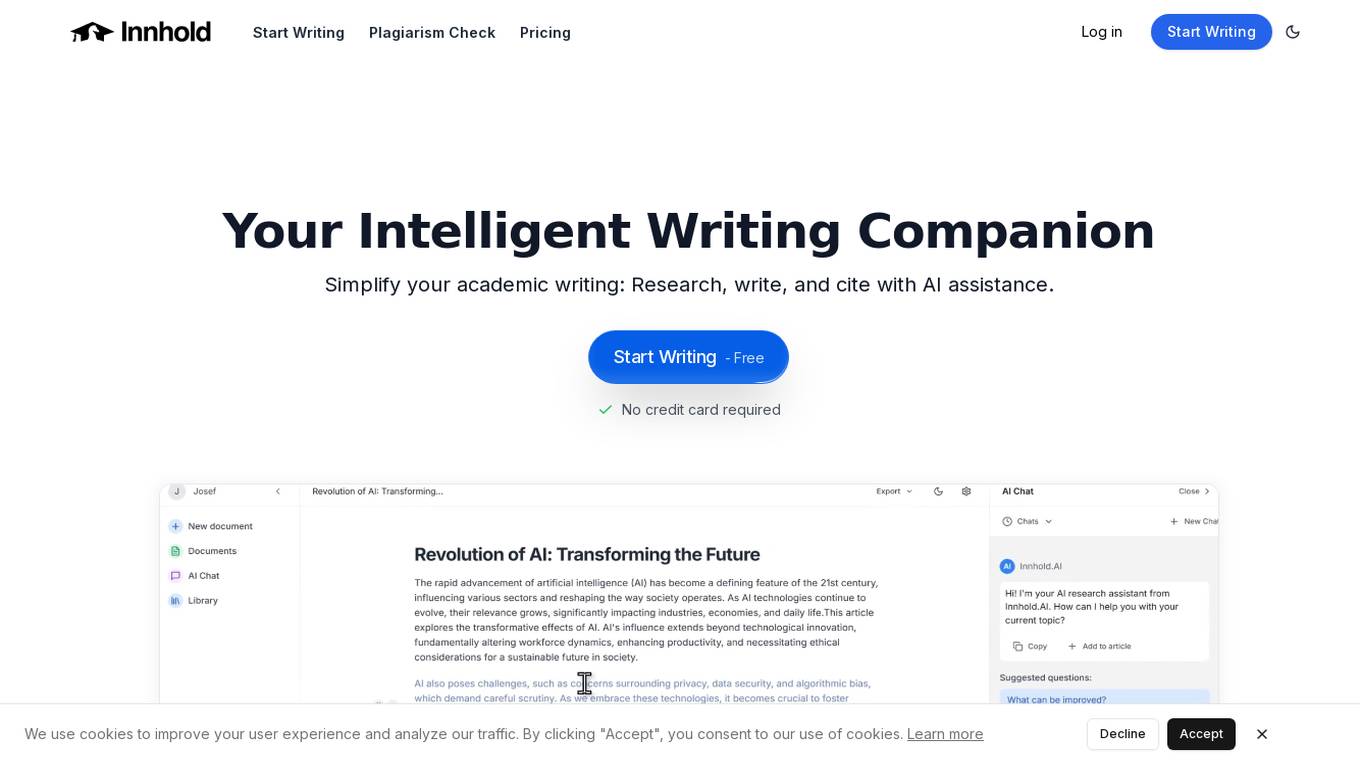
Innhold.ai
Innhold.ai is an AI-powered writing assistant designed to enhance your writing experience. It offers advanced features such as grammar checking, sentence restructuring, and vocabulary enhancement to help you create high-quality content. With its intuitive interface, users can easily improve their writing skills and productivity. Whether you are a student, professional writer, or content creator, Innhold.ai can assist you in crafting engaging and error-free text.

BioloGPT
BioloGPT is an AI tool designed to answer biology-related questions with insights and graphs. It provides information on various topics such as maintaining a healthy gut microbiome, foods for a healthy immune system, effects of cannabis on the brain, risks of Covid-19 vaccines, and advancements in psoriasis treatment. The tool is updated daily and cites full papers to support its answers.
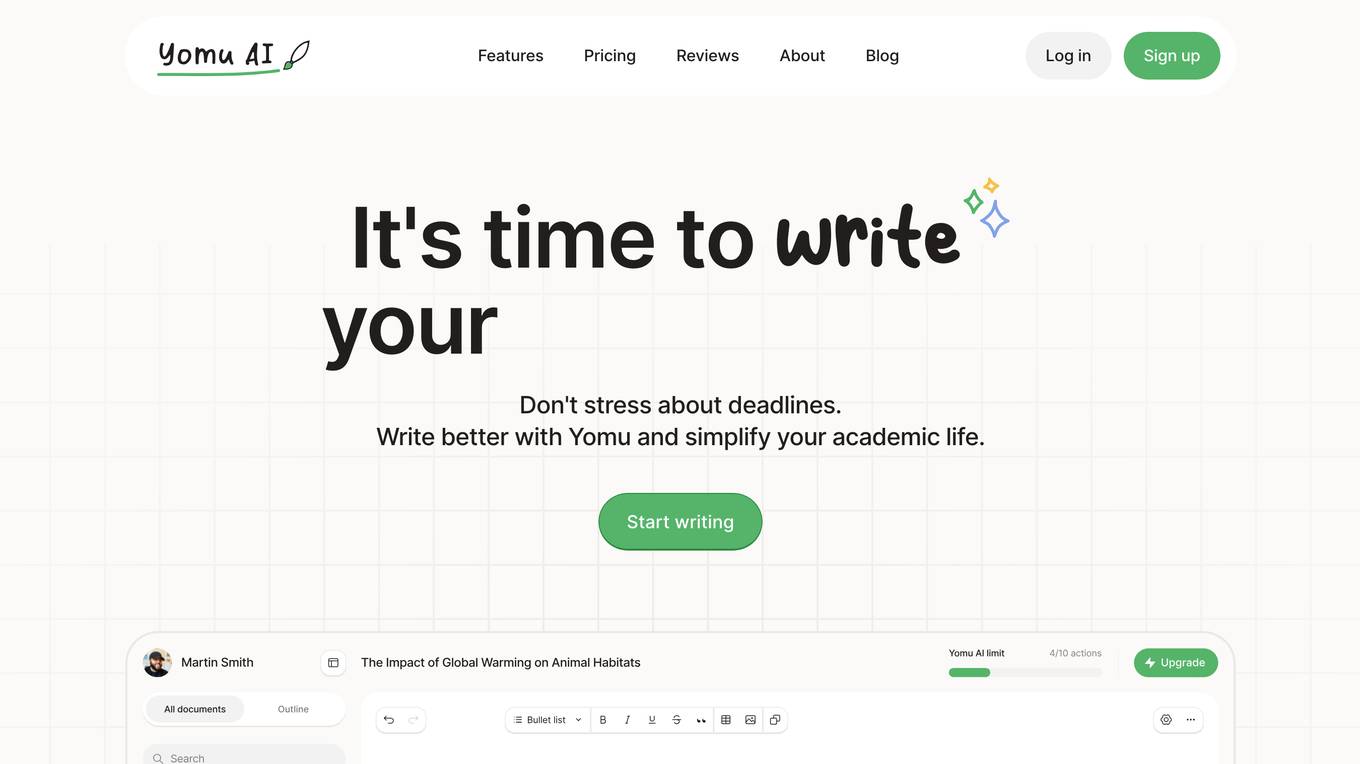
Yomu AI
Yomu is an AI-powered writing assistant designed to help users with academic writing tasks such as writing essays and papers. It offers features like an intelligent Document Assistant, AI autocomplete, paper editing tools, citation tool, plagiarism checker, and more. Yomu aims to simplify the academic writing process by providing AI-powered assistance to enhance writing quality and originality.

Yomu AI
Yomu AI is an AI-powered writing assistant designed to help users write better essays, papers, and academic writing. It offers features such as an intelligent Document Assistant, AI autocomplete, paper editing tools, citation tool, plagiarism checker, and more. Yomu aims to simplify academic writing, enhance productivity, and ensure originality and authenticity in the users' work.
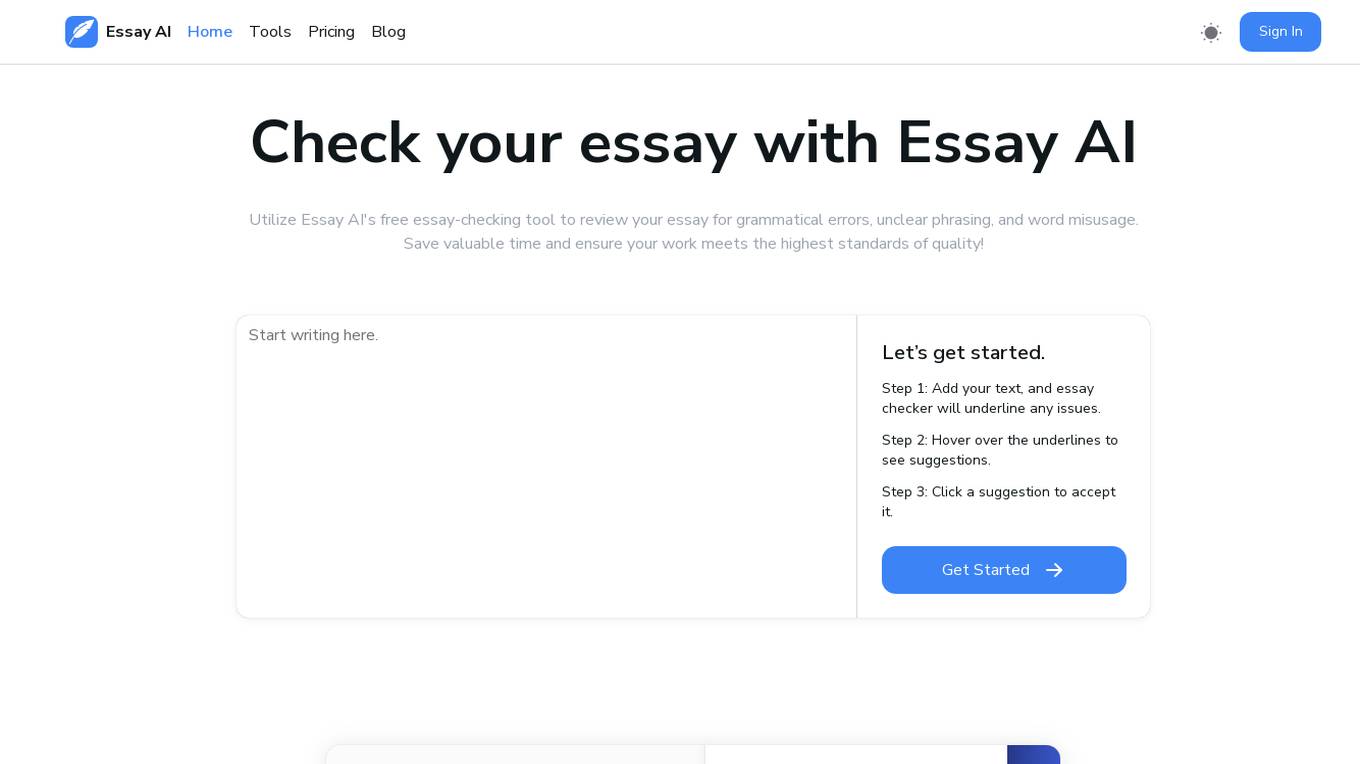
Essay AI
Essay AI is a free essay-checking tool designed to help users review their essays for grammatical errors, unclear phrasing, and word misusage. It offers features such as AI autocomplete, conversation engagement, source citation, paraphrasing, rewriting, and outline building. The tool aims to save users valuable time and ensure their work meets high-quality standards. Trusted by top universities, Essay AI streamlines the essay writing process and provides instant feedback to improve writing skills.
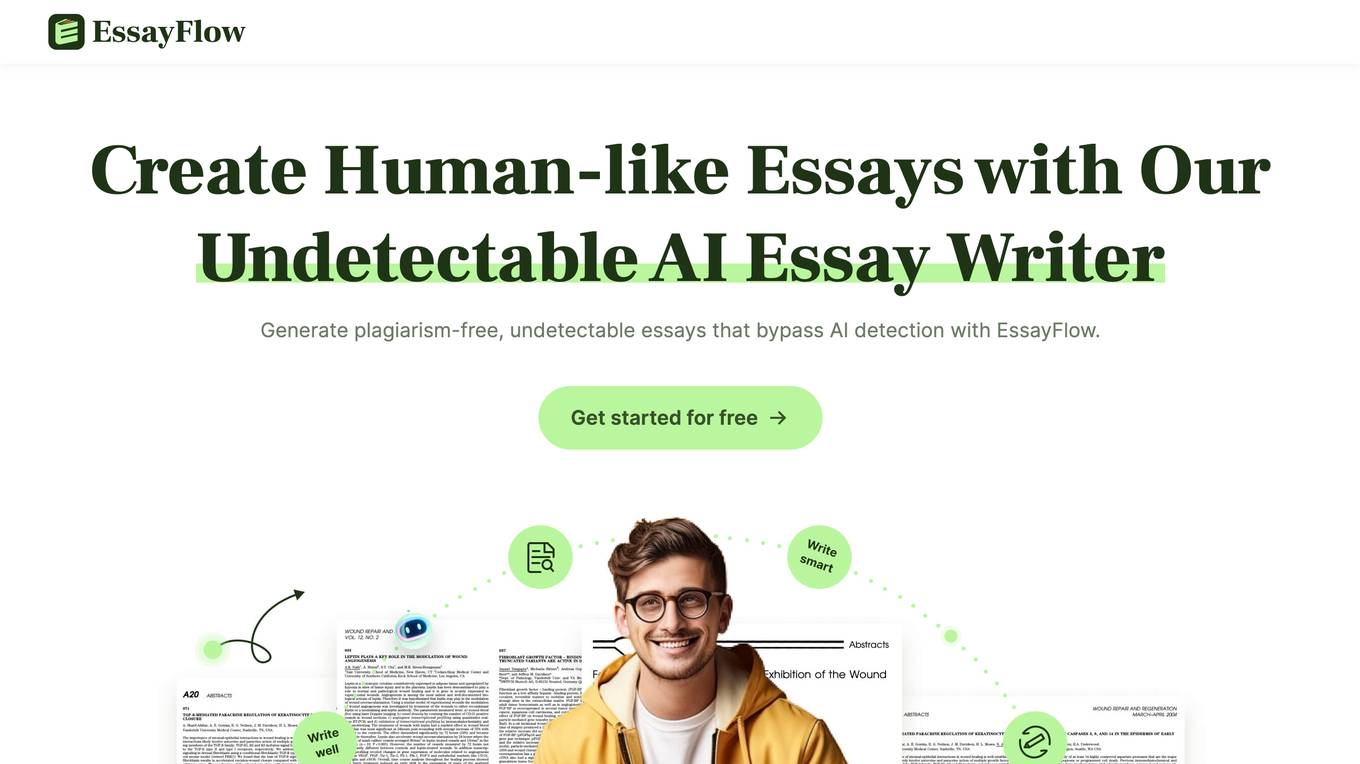
EssayFlow
EssayFlow is a free AI essay writer that helps students and academics write high-quality essays. It offers a range of features to make essay writing easier, including a plagiarism checker, grammar checker, and auto-completion tool. EssayFlow also provides access to a large database of academic resources, making it easy to find relevant and credible sources for your essays.
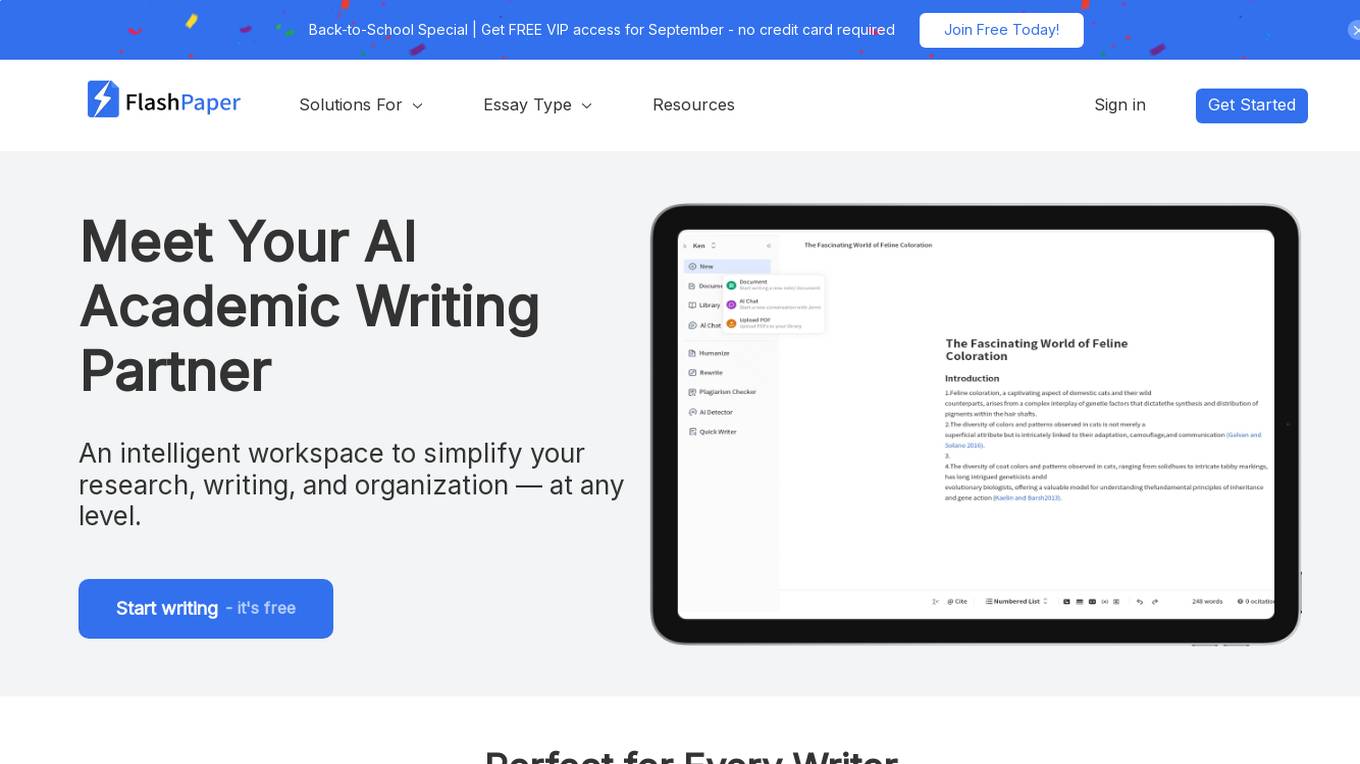
FlashPaper.ai
FlashPaper.ai is an AI-powered academic paper writing tool that helps students and researchers generate high-quality, plagiarism-free content effortlessly. The tool utilizes advanced natural language processing algorithms to create well-structured and coherent papers on various topics. With FlashPaper.ai, users can save time on research and writing, improve their writing skills, and enhance their academic performance. The platform offers a user-friendly interface and intuitive features to streamline the writing process, making it an indispensable tool for anyone looking to produce top-notch academic papers.
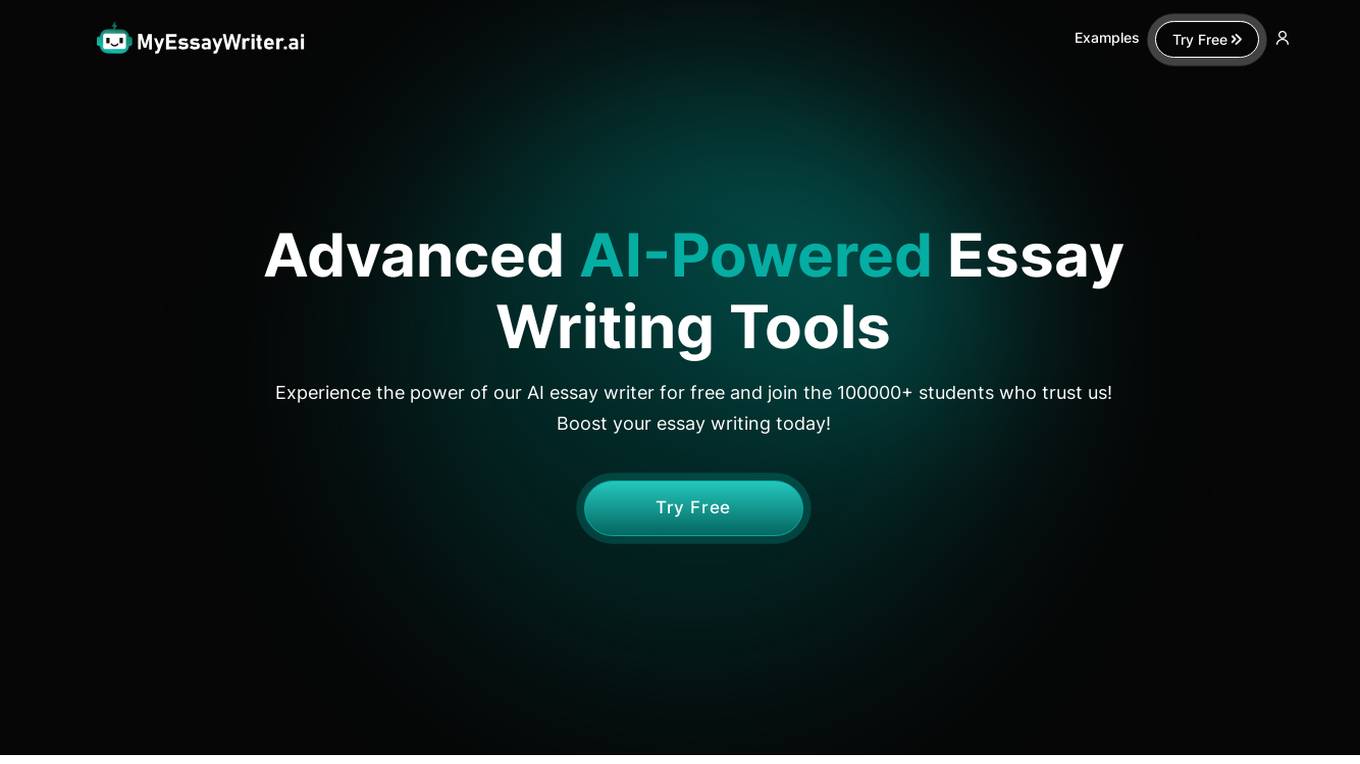
MyEssayWriter.ai
MyEssayWriter.ai is an AI-powered essay writing tool that offers advanced features to help students generate high-quality essays efficiently. The tool is designed to save time, improve writing skills, and provide unique and plagiarism-free content. With a user-friendly interface and customizable essays, MyEssayWriter.ai aims to revolutionize the writing process for students worldwide.
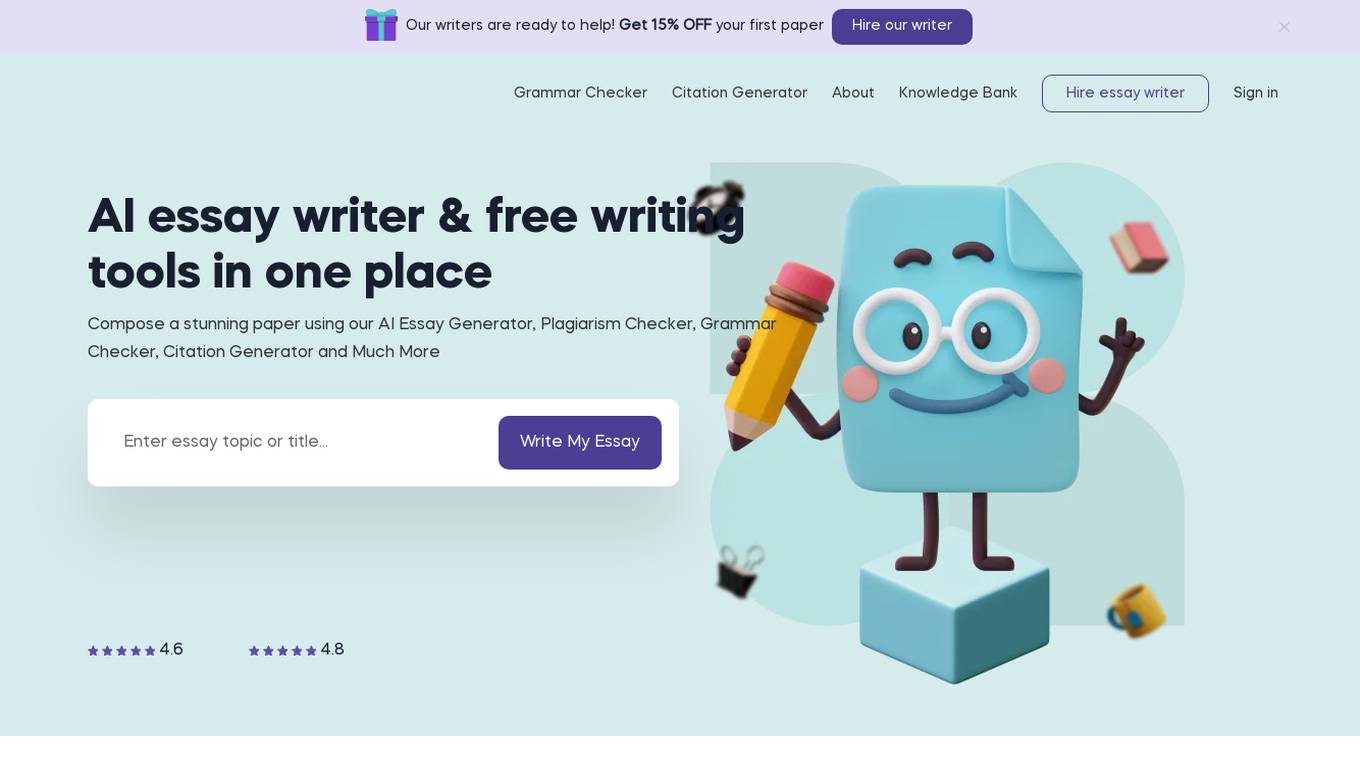
PaperTyper
PaperTyper is an online writing platform that offers a range of free tools for students to use in their academic writing. These tools include an AI essay writer, plagiarism checker, grammar checker, and citation generator. PaperTyper also offers a paid service where students can hire professional essay writers to write their papers for them.
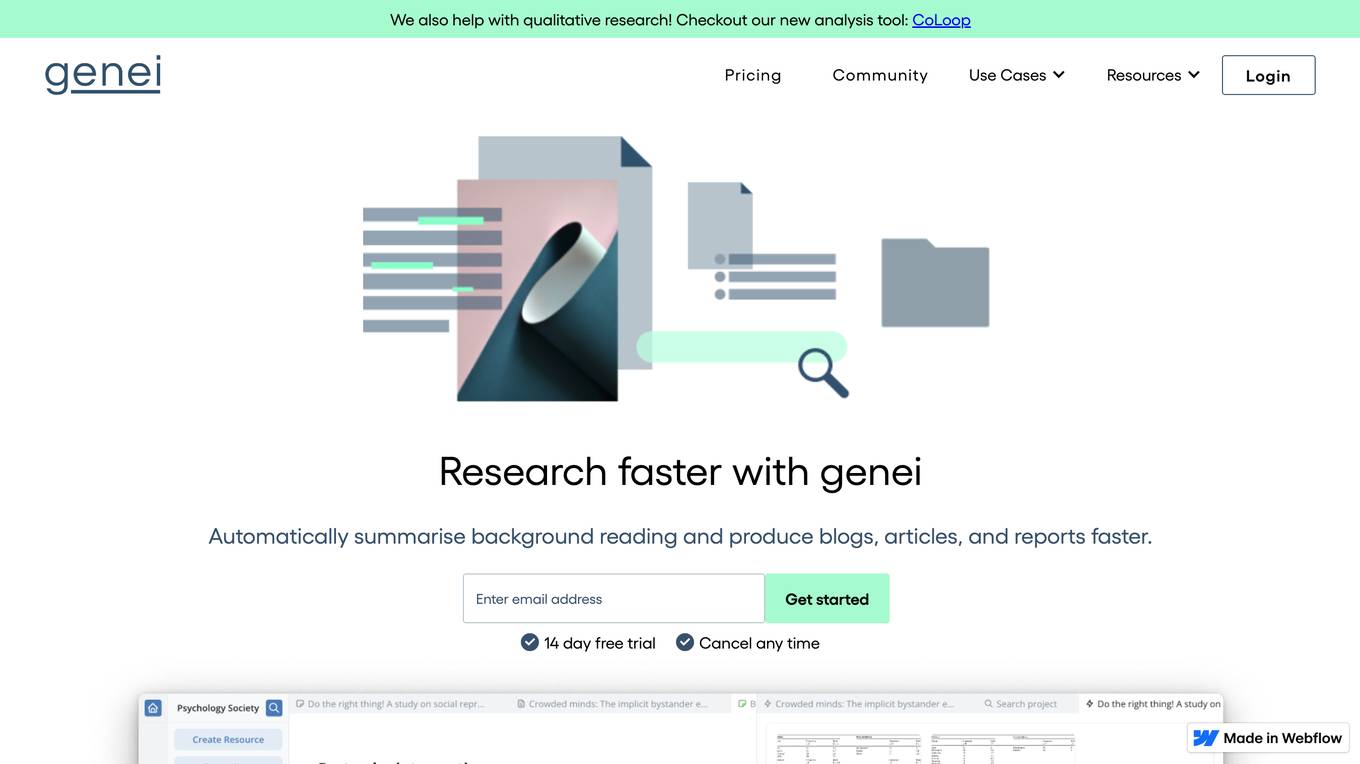
Genei
Genei is an AI-powered summarization and research tool that helps users with qualitative research, content production, academic writing, and professional writing. It enables users to research faster by automatically summarizing background reading and producing blogs, articles, and reports efficiently. Genei offers features such as summarization, keyword extraction, document management, annotation capabilities, and citation management. Trusted by thought leaders and experts, Genei enhances productivity, saves time, and improves the quality and efficiency of research and writing tasks.
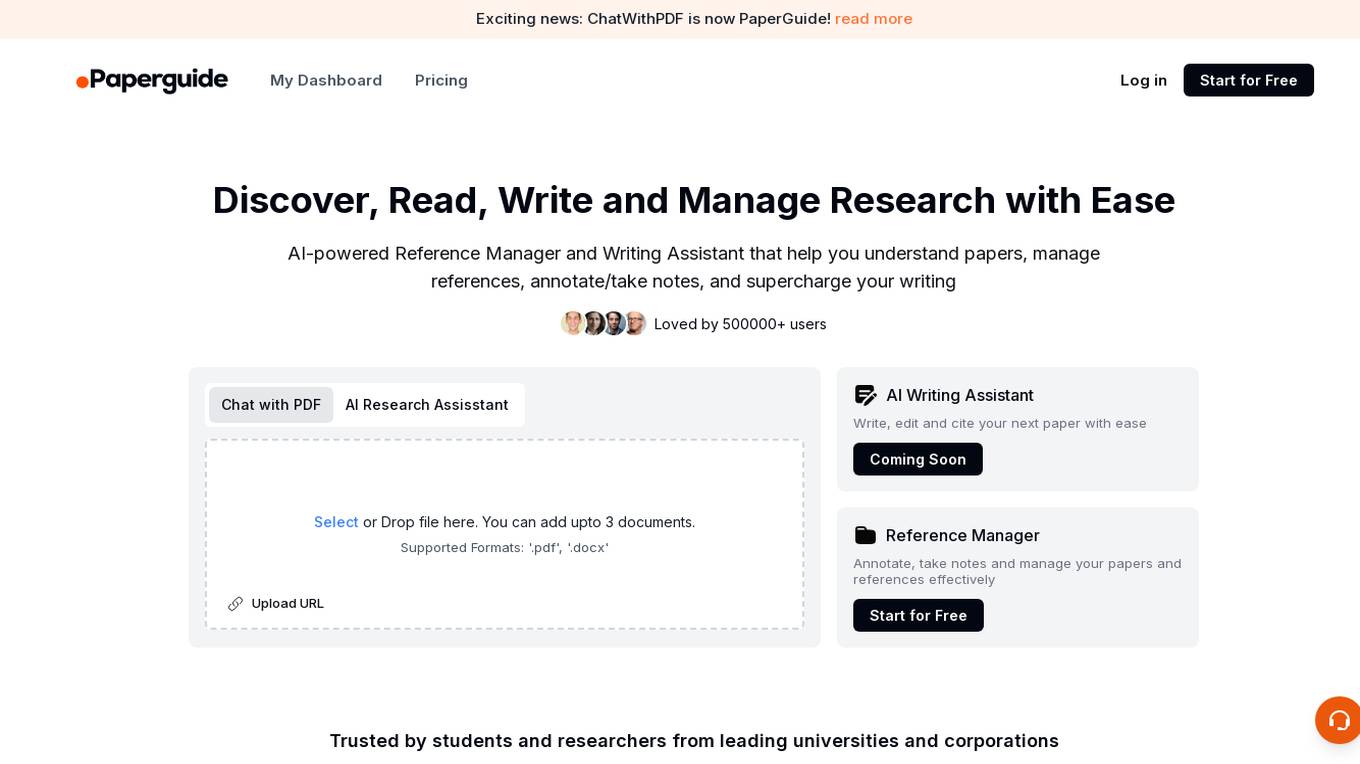
Paperguide
Paperguide is an AI Research Platform that offers an all-in-one solution for researchers and students to discover, read, write, manage research papers with ease. It provides AI-powered Reference Manager and Writing Assistant to help users understand papers, manage references, annotate/take notes, and supercharge their writing process. With features like AI Search, Instant Summaries, Effortless Annotations, and Flawless Citations, Paperguide aims to streamline the academic and research workflow for its users.

EssayAI
EssayAI is an AI-powered essay writing tool that helps users generate high-quality, plagiarism-free essays. It is designed to be undetectable by AI detectors and offers a range of features to assist writers, including smart outlining, extensive scholarly database integration, instant citation system, intelligent AI chatbot, and vast AI-driven toolsets. EssayAI can be used to write essays for various academic levels and subjects, as well as research papers, theses, case studies, and analytical reviews. It is also suitable for content writing freelancers and students who need help improving their writing skills.
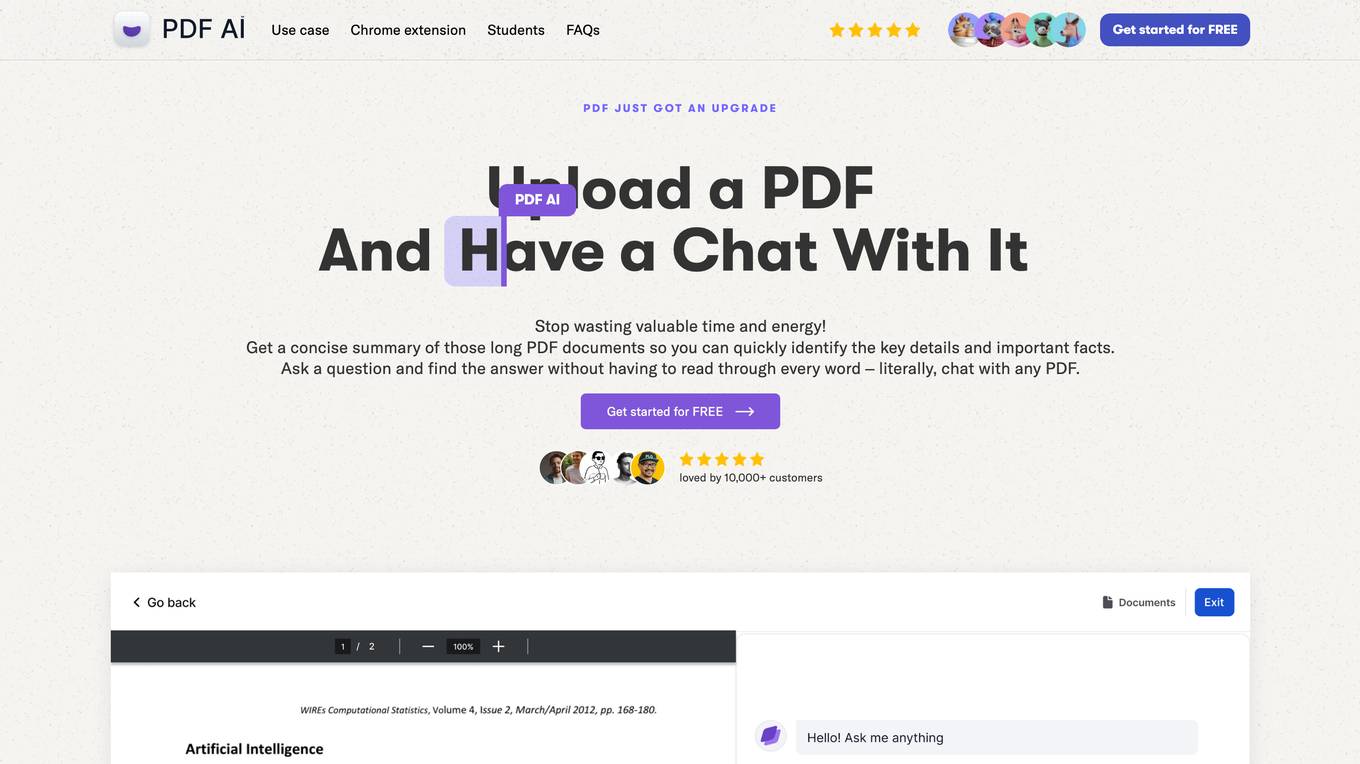
PDF AI
The website offers an AI-powered PDF reader that allows users to chat with any PDF document. Users can upload a PDF, ask questions, get answers, extract precise sections of text, summarize, annotate, highlight, classify, analyze, translate, and more. The AI tool helps in quickly identifying key details, finding answers without reading through every word, and citing sources. It is ideal for professionals in various fields like legal, finance, research, academia, healthcare, and public sector, as well as students. The tool aims to save time, increase productivity, and simplify document management and analysis.
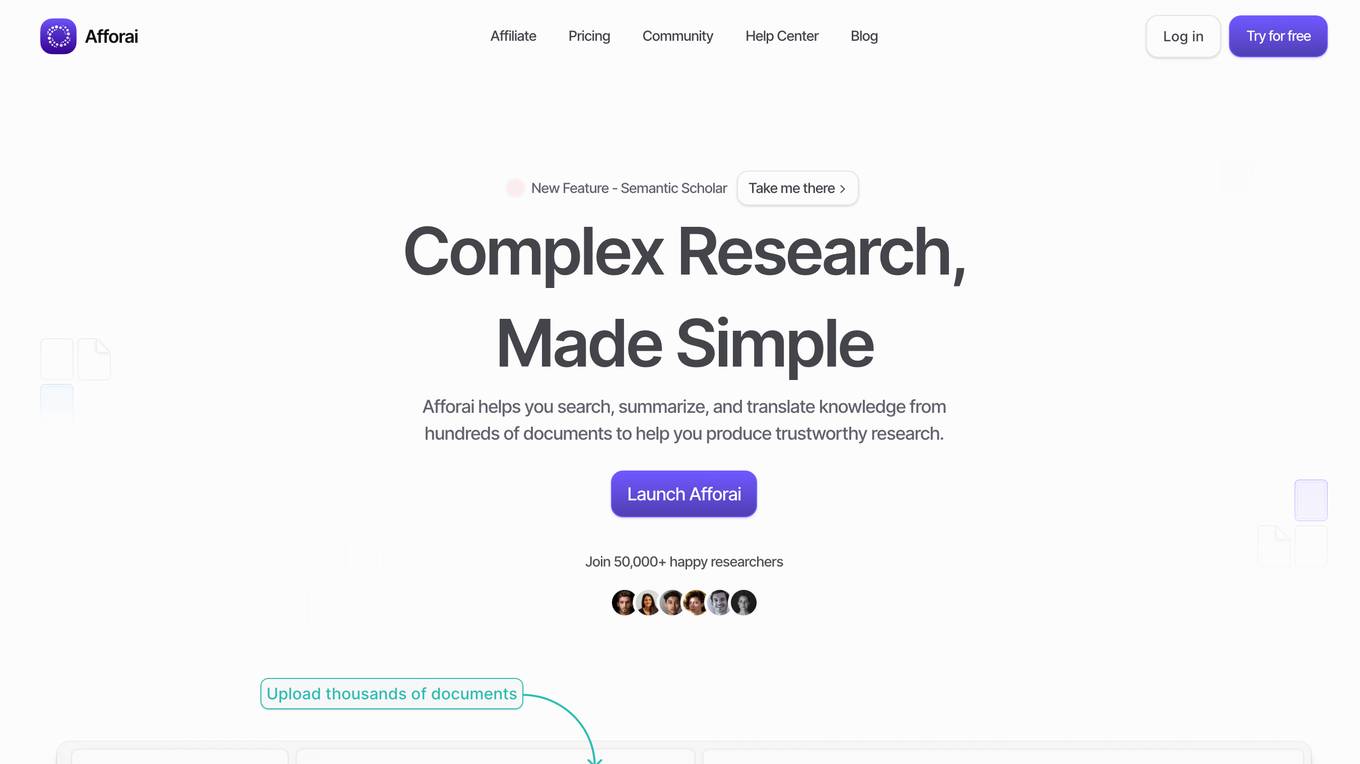
Afforai
Afforai is a powerful AI research assistant and chatbot that serves as an AI-powered reference manager for researchers. It helps manage, annotate, cite papers, and conduct literature reviews with AI reliably. With features like managing research papers, annotating and highlighting notes, managing citations and metadata, collaborating on notes, and supporting various document formats, Afforai streamlines academic workflows and enhances research productivity. Trusted by over 50,000 researchers worldwide, Afforai offers advanced AI capabilities, including GPT-4 and Claude 3.5 Sonnet, along with secure data handling and seamless integrations.

WriterBuddy
WriterBuddy is an advanced AI writing assistant that streamlines academic workflow by helping users research, write, edit, and cite faster and smarter. It offers features such as paraphrasing, text summarization, plagiarism checking, grammar checking, and citation generation. WriterBuddy aims to enhance writing productivity, accuracy, and originality, catering to students, researchers, and professionals across various industries.
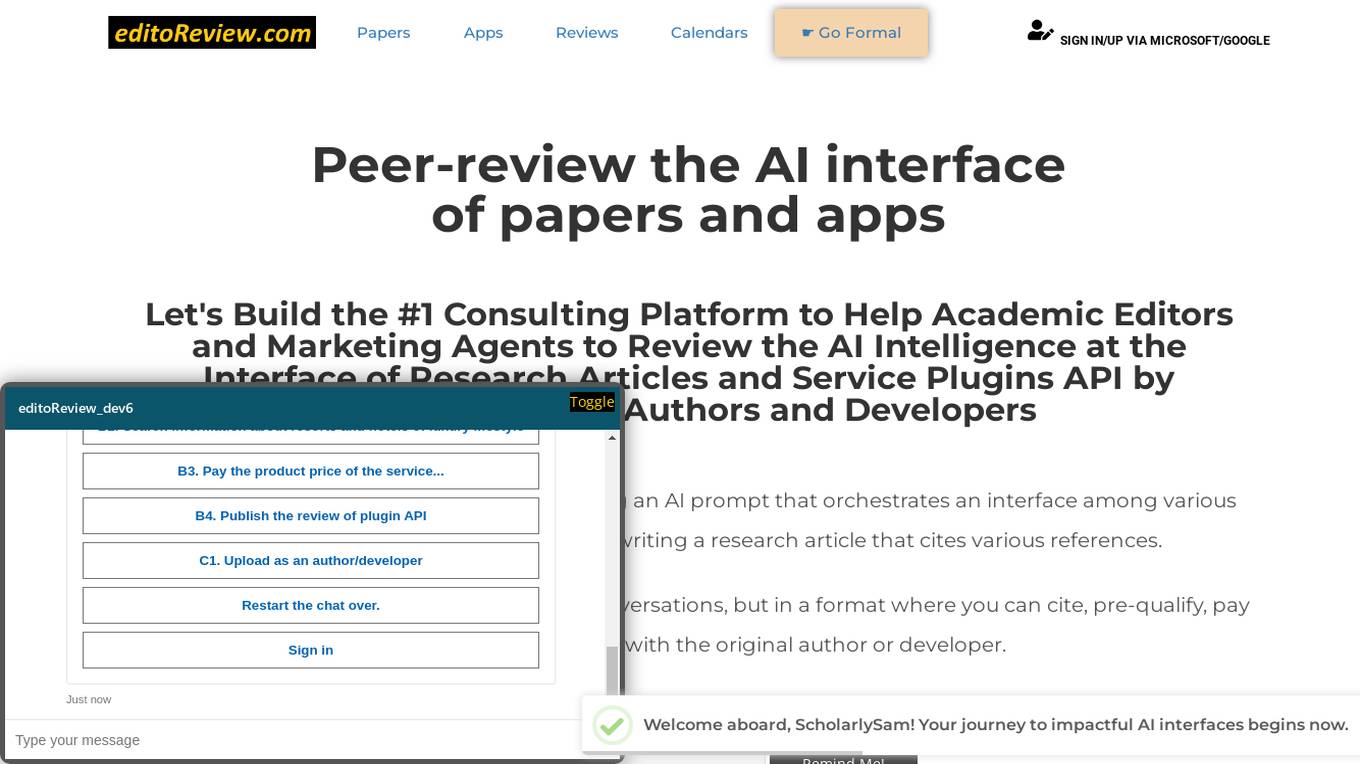
editoReview
editoReview is a consulting platform and marketplace that helps academic editors and marketing agents to review the AI intelligence at the interface of research articles and service plugins API by consulting with authors and developers. It allows users to start a new review using an AI chat transcript or from a template document, cite the reference paper or app to schedule a consultation meeting with the author or developer, and pay the optional consultation and publish the review transcripts with shareable links.
1 - Open Source AI Tools
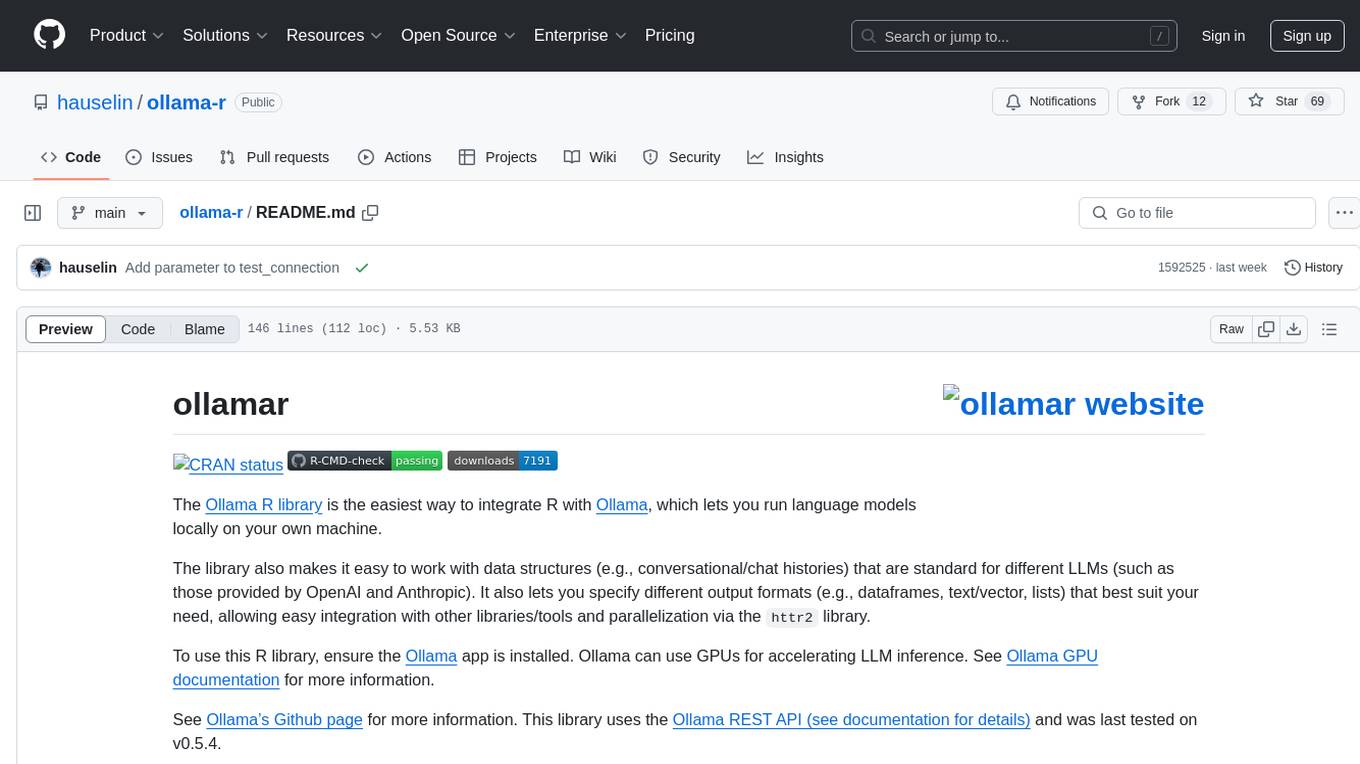
ollama-r
The Ollama R library provides an easy way to integrate R with Ollama for running language models locally on your machine. It supports working with standard data structures for different LLMs, offers various output formats, and enables integration with other libraries/tools. The library uses the Ollama REST API and requires the Ollama app to be installed, with GPU support for accelerating LLM inference. It is inspired by Ollama Python and JavaScript libraries, making it familiar for users of those languages. The installation process involves downloading the Ollama app, installing the 'ollamar' package, and starting the local server. Example usage includes testing connection, downloading models, generating responses, and listing available models.
20 - OpenAI Gpts

The Golf Rules Explainer (Cite USGA Rules)
I'm a bot that provides clear, simple answers about golf rules.
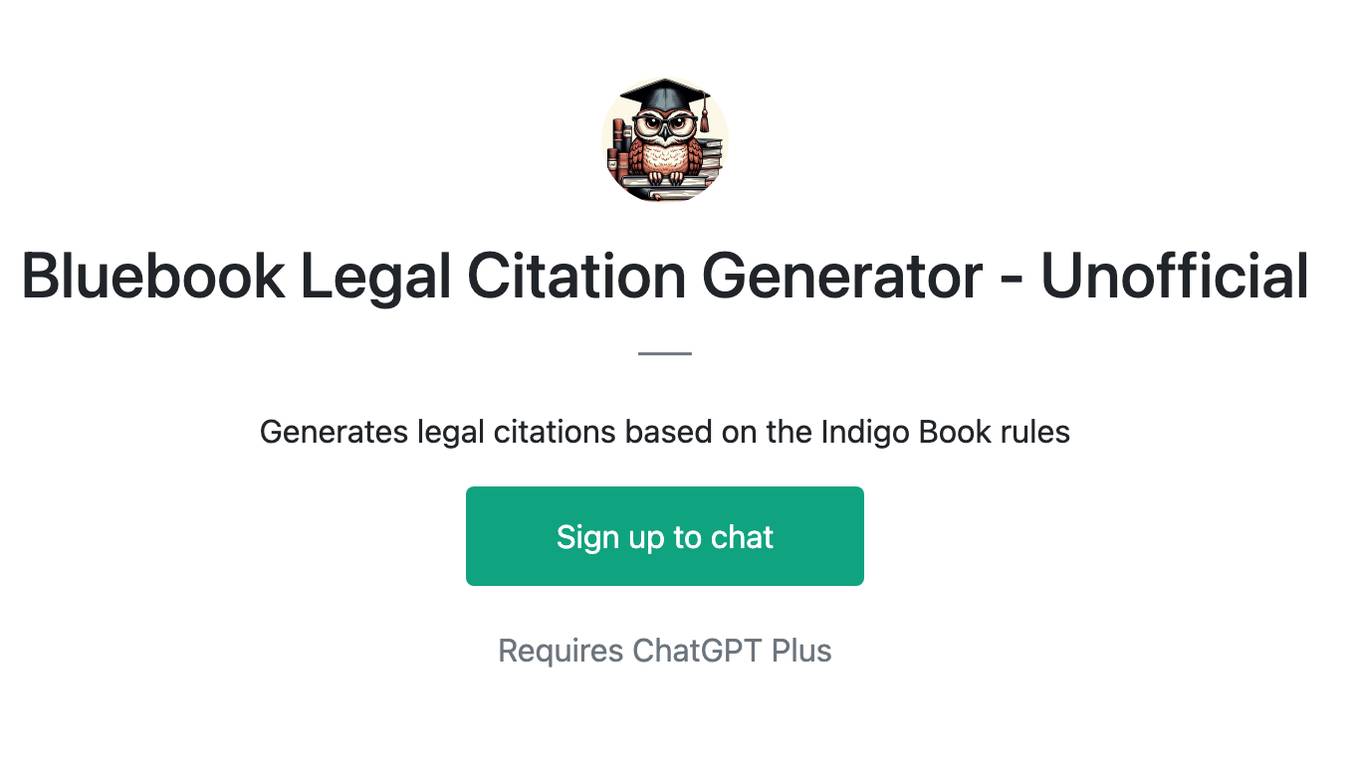
Bluebook Legal Citation Generator - Unofficial
Generates legal citations based on the Indigo Book rules
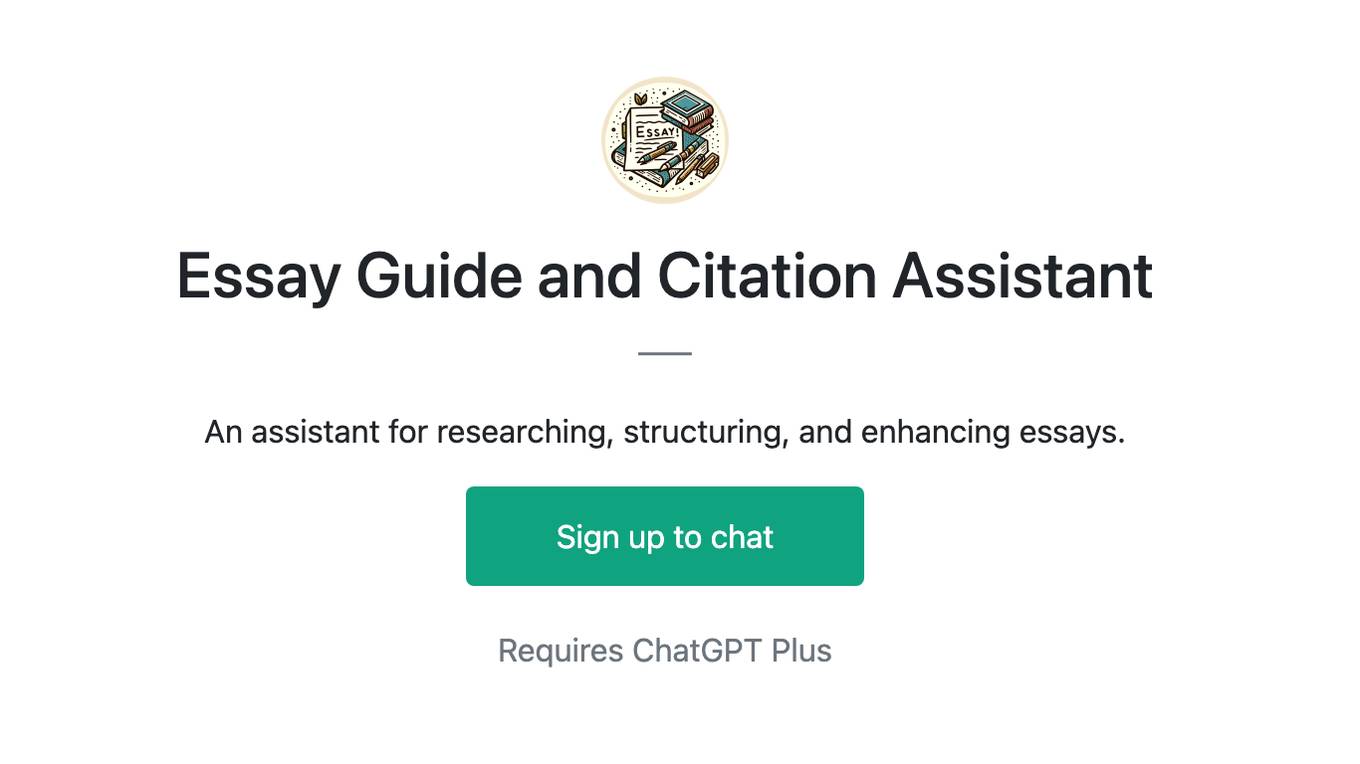
Essay Guide and Citation Assistant
An assistant for researching, structuring, and enhancing essays.
